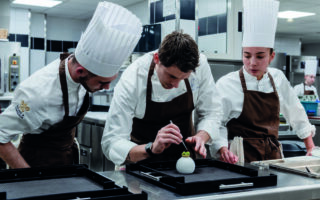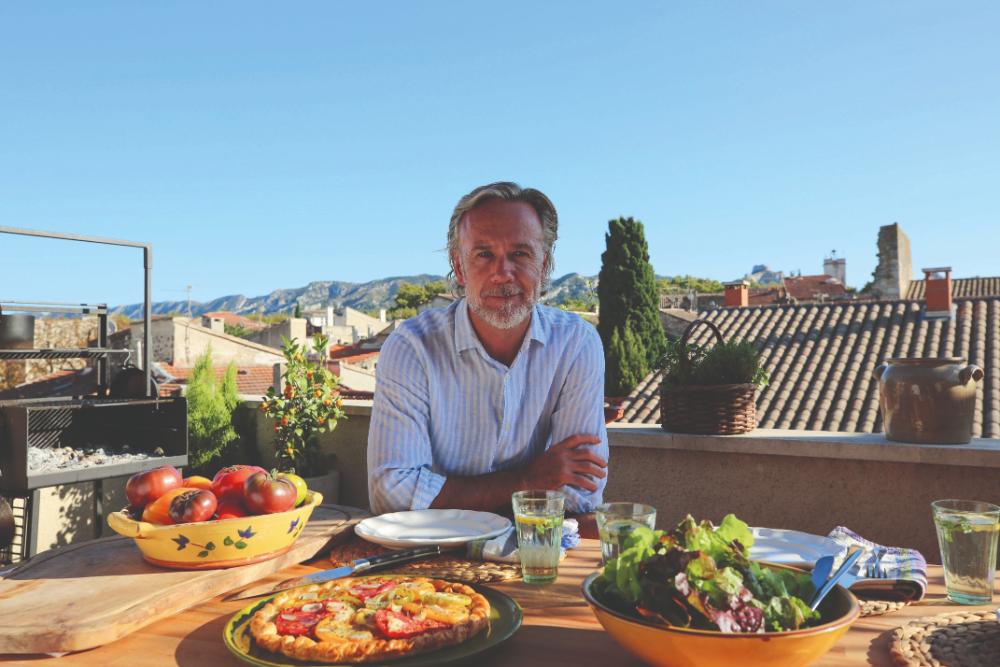
An interview with Marcus Wareing
To mark the publication of his superb new French cookbook, the celebrated restaurateur tells Gill Harris about his glittering career and his enduring love for la gastronomie française…
Chef Marcus Wareing is well known to many as the face of MasterChef. To others, he’s the man behind high-end London restaurants such as Marcus Wareing at the Berkeley and The Gilbert Scott. Now you can enjoy Marcus’s cooking at home thanks to his new book, Marcus’s France, which not only contains a multitude of mouthwatering recipes but leads readers on a culinary journey through France and Marcus’s 40-year career working in some of the best restaurants in the world.
This book is all about your deep connection with French cuisine. What is it you love so much about it?
I think it’s a cuisine with roots, with authenticity and it’s a cuisine that I have been cooking all my professional life. I think it’s the basis of many foods in this country. Of course, France also has the most wonderful ingredients, produce and wine!
How do you think your early training in classic French techniques influenced your culinary style today?
Well, it’s all I was taught so everything I do now is based on that, from a roux sauce to the prep of a fish, everything. My college exams were all based on French cuisine. Over the years I have adapted the way I serve or present things or the ingredients I use but ultimately the basics are French. We may use technology to adapt the way we cook but the basis for me is French.
How did mentors like Albert Roux and Guy Savoy shape your approach to cooking?
They showed me the level of professional discipline required in a successful kitchen. I learnt to respect everything in the kitchen, the ingredients, the cooking methods, standards etc which laid the foundations for me. Their passion for what they did just inspired the people around them, it was contagious.
From The Savoy to Le Gavroche, you have cooked in some of the UK’s finest kitchens. What memories stand out? Just hard work!
Was there ever a point when you thought, I can’t do this?
There were times when it was tough, of course. Times when I had to sacrifice, when I had to work long hours, work Christmas, work bank holidays, work weekends. But no, I turned it into a way of life, so it wasn’t a chore.
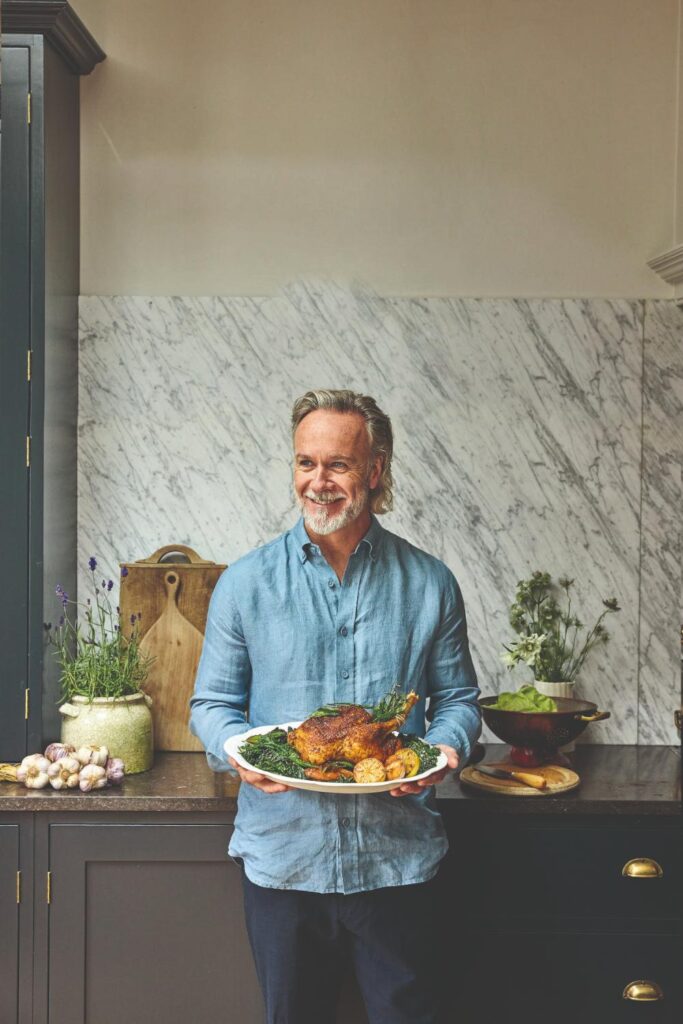
How did your time at Guy Savoy in Paris deepen your understanding of French gastronomy?
I saw it first-hand. The thing I had been taught for all those years in Paris, in the heart of France-it was incredible.
You were one of the youngest ever people to receive a Michelin star-how did that feel?
It was completely unexpected. I wasn’t working towards it, I just wanted to do the best and offer my customers the best. What it gave me, it made me realise that my training had paid off. A Michelin star brings its own pressures and that was difficult in its own way at 25.
How did you choose which recipes to include in the book and how have you adapted them for your readers who (probably) aren’t highly trained chefs?
It’s the dishes that I have the greatest memories of, ones that I have cooked many times over the years. I have taken classics and adapted them, so they are much lighter and simpler than the original. Also, a lot more practical for home. There are recipes from French homes, brasseries and even some of the top three-star restaurants but I have adapted them for us all to cook at home.
What are some of the most technically challenging recipes you’ve included and what would be your advice to the home chef giving them a go for the first time?
Tourte de gibier with madeira and truffle. It’s a very beautiful French pie-full of decadent ingredients and luxury. I cooked this in a three-star in London. My advice to someone cooking this for the first time is the same as all recipes: read all the way through first! Also, don’t do it for the first time for your special event. Practise the techniques first, You say in your book that working with fresh, high-quality ingredients is essential.
What are some of your favourite French ingredients and why?
I don’t have a particular favourite, there are so many. Walking round a French market though you can’t help but be inspired. The fruit-including tomatoes, which have ripened in the sun-are sweet and delicious. The Pyrenean lamb and the famous French chicken, Poulet de Bresse, the cured meats. Wow.
What are your favourite French regions when it comes to cuisine and which dishes do you love best?
The South of France and Provence is my favourite – I have worked there, holidayed there and explored the region in Simply Provence. I love Paris but it has ingredients from every region available. Of course, I love the wine regions and the cheese!
What role does French pâtisserie play in your repertoire and which dessert do you most enjoy making?
I have also trained in pastry and bread-making so it plays a huge part, and of course overseeing a kitchen, it helps to know that section as well as every other. My favourite dessert to make is probably Apple Tarte Tatin. It’s delicious and it’s a wonderful showstopper. Millefeuille is also a favourite.
Which French dish in this book brings you the most joy to cook?
It’s so hard to answer that they all do. They all represent great memories, and they are all delicious. My favourites vary depending on the time of year, who I am cooking for. I am reminded how wonderful and simple the chicken liver parfait is; I made it recently and now it’s a regular at home. I love the cassoulet -it’s the French version of our stews, and reminds me of my upbringing in the North.
The way you’ve organised the book allows readers to follow your culinary journey through life and it adds a flavour of autobiography to the book – was it important to you to share something of yourself with your readers?
Well, it’s not a book of recipes, it’s a book of my life explored through food. So yes, I think it was important to explain something about my life and where my love of food came from.
Delia Smith recently said that it’s ‘very hard’ to find a decent meal in France these days because of the reduced use of butter and cream. What are your thoughts on the French cuisine of today?
It’s adapting-French cuisine is adapting to the modern palate and generally becoming less rich. As the recipes in this book show. I still use butter but on occasion use crème fraiche instead of cream, or use less. I don’t think it detracts from the dish-that’s my job to make sure it doesn’t. So no, I don’t really agree with Delia.
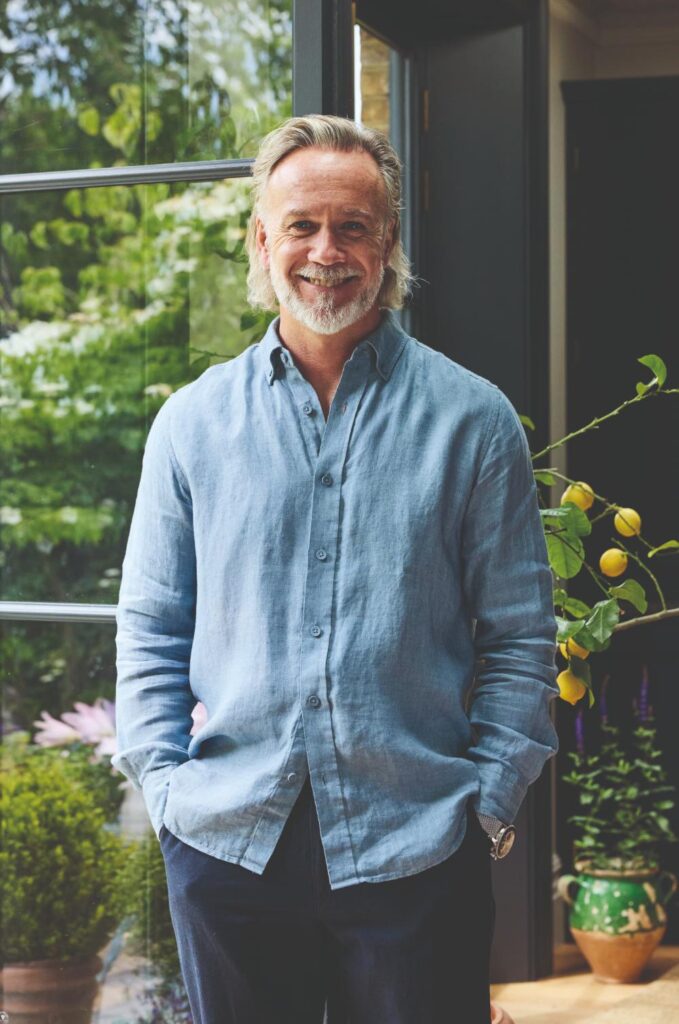
What’s the most memorable meal you’ve ever eaten?
I was honoured to be invited to a celebration by Alain Ducasse in the iconic Louis XV restaurant. Chefs from all over the world were invited. It was the second time I was lucky enough to eat there, both fantastic-mind-blowing in fact.
What would you choose for your last meal?
I think I’d want my dad to cook it for me, a cup of tea served with his Full English cooked breakfast. Not very French but can’t be beaten.
What do you hope readers will gain from this book?
I hope they gain the ability to cook some of the most iconic French dishes. I hope they gain a new appreciation for them and realise they can be lighter and simpler than expected and hugely rewarding.
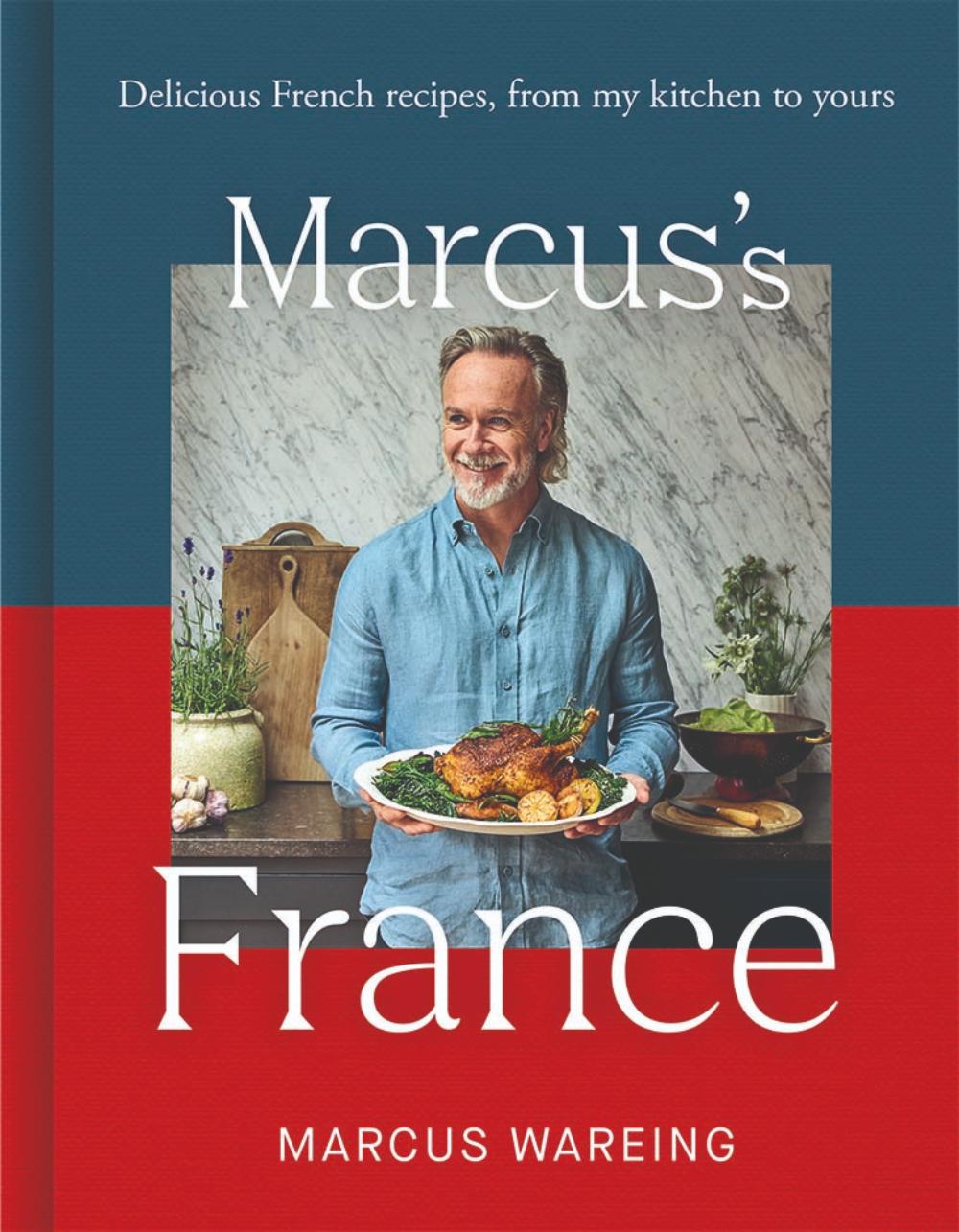
Marcus’s France is out now, published by HarperNonFiction, £26. You can also watch Marcus in Simply Provence on BBC iPlayer. Turn to our Recipes section on p77 for three recipes from Marcus’s France.
Looking for more French food and drink content?
In our magazine we offer a whirlwind tour of the best gastronomic destinations. Discover La Belle France’s renowned markets, quirkiest food festivals, most indulgent restaurants and foodie experiences.

Lead photo credit : Marcus Wareing on Simply Provence on the BBC CREDIT BBC_Plimsoll Productions_Daniel James Lewis
Share to: Facebook Twitter LinkedIn Email
More in Chef, Interview, Michelin


